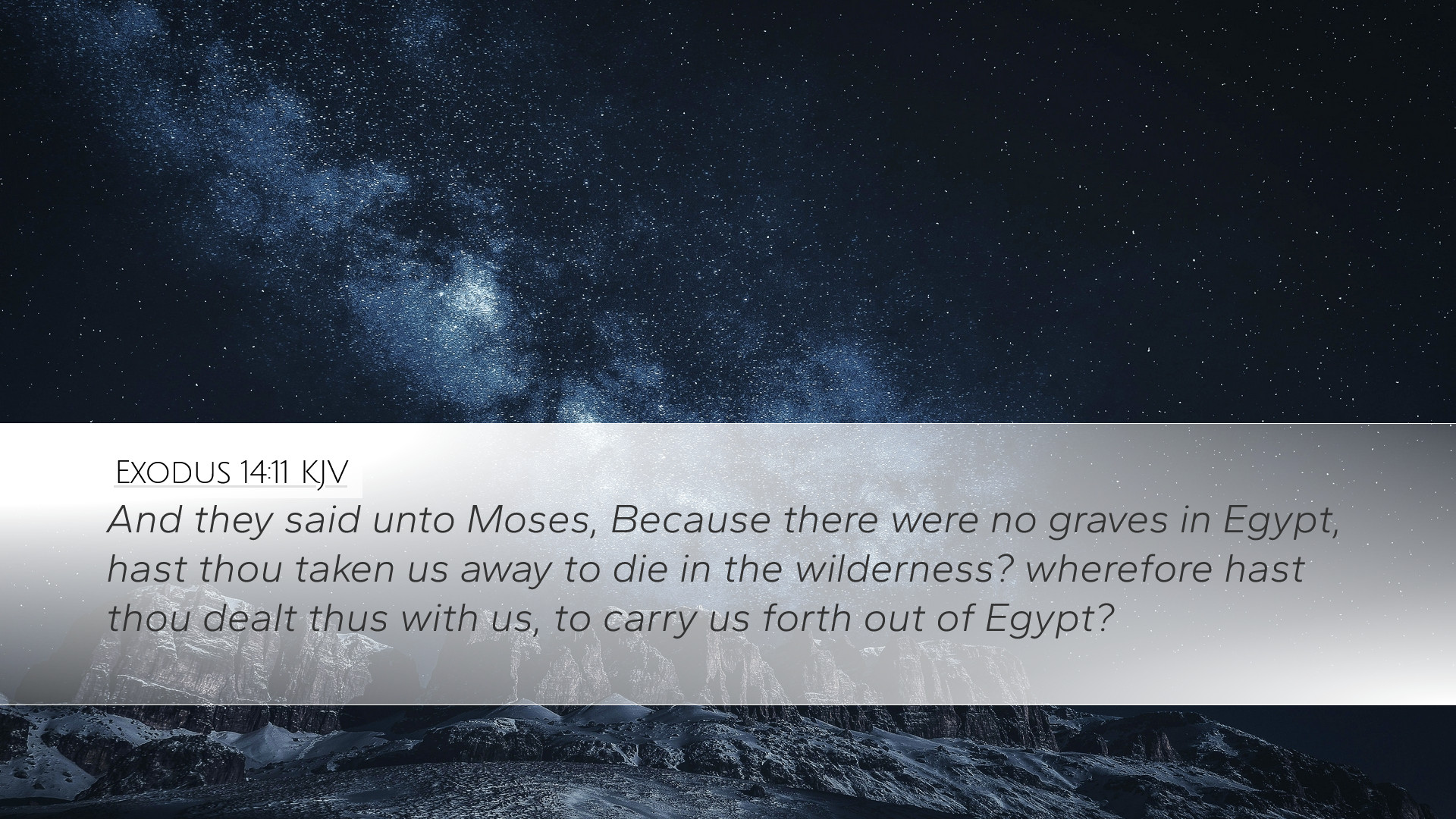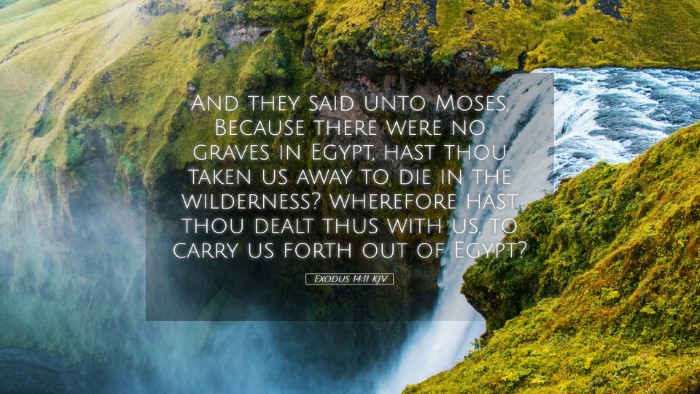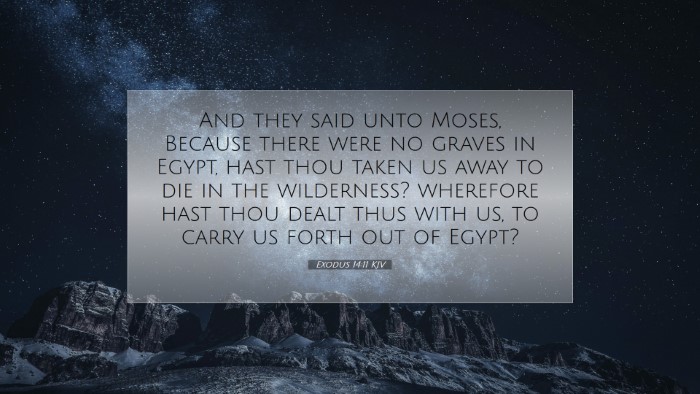Commentary on Exodus 14:11
Verse: Exodus 14:11 - "And they said unto Moses, Because there were no graves in Egypt, hast thou taken us away to die in the wilderness? wherefore hast thou dealt thus with us, to carry us forth out of Egypt?"
Introduction
This verse captures a moment of profound distress among the Israelites as they faced the daunting task of escaping from slavery in Egypt and confronting the uncertain future that lay ahead. The words expressed here reveal both their desperation and misunderstanding of God's purpose.
Contextual Analysis
To fully grasp the weight of this verse, one must consider its context within the broader narrative of Exodus. The Israelites have witnessed miraculous acts of God, yet they find themselves questioning their liberation due to the prospect of death in the wilderness.
Matthew Henry's Perspective
According to Matthew Henry, this lamentation reflects a lack of faith among the Israelites. He emphasizes that their cry stems from a misunderstanding of God's deliverance purpose. They equate being pursued by the Egyptians and facing possible death with failure. Henry notes that their focus on immediate danger blinds them to the faithfulness and power of God, who had already delivered them from slavery.
Albert Barnes' Insights
Albert Barnes elaborates that the Israelites' fear was heightened by their precarious position between the Red Sea and the advancing Egyptian army. Barnes argues that their complaint reveals a deeper spiritual principle: the tendency for humans to panic in fear, forgetting the past mercies and provisions of God. He suggests this moment serves as a reminder for believers to maintain faith in God’s promises, even when circumstances appear dire.
Adam Clarke's Interpretation
Adam Clarke provides a linguistic and theological analysis of the verse. He points out that the Israelites' rhetorical question, "were there no graves in Egypt?" suggests their disbelief in Moses’ leadership. Clarke indicates that the Israelites had witnessed God's might, yet their fear eclipsed their gratitude. He interprets their statement as a reflection of human nature: often, when faced with challenging situations, people tend to revert to pessimism rather than trust in divine intervention.
Theological Implications
This verse poses significant theological questions regarding faith, fear, and God's providence. The Israelites' response challenges believers today to consider how often circumstances lead to doubt in God’s goodness and plans. It serves as a theological reflection on the relationship between divine deliverance and human response.
Faith Versus Fear
The fear exhibited by the Israelites can be seen as a common human reaction when faced with uncertainty. As Barnes notes, this narrative encourages a deeper exploration of how faith can confront fear. It reminds us that God often leads His people into situations that stretch their faith and demand trust, even when they perceive threats around them.
Understanding God’s Deliverance
This incident informs our understanding of deliverance. It shows that God's ways are not always aligned with human expectations. Moses, as a leader, represents the necessity of guidance during spiritual journeys. The fear of the Israelites presents a critical challenge faced by leaders today—how to manage fear and cultivate faith within their communities.
Practical Application for Today
The lessons derived from Exodus 14:11 are immensely applicable for contemporary Christians. The echoes of the Israelites' fears resonate with modern believers who often face trials that seem insurmountable. How can today's followers of Christ learn from their struggle?
Encouragement in Trials
First, this verse encourages believers to remember God's past faithfulness. When faced with trials, it is imperative to reflect on the times when God has acted. This reflective practice can be a source of strength, helping to navigate through present fears.
Leading by Faith
For pastors and church leaders, the response of the Israelites serves as a cautionary tale about the importance of addressing fears within their flock. Leaders can provide encouragement and direction by reminding the community of God’s faithfulness and the importance of trusting His plan, even when the path is unclear.
Conclusion
In summary, Exodus 14:11 offers rich commentary on the dynamics of faith, fear, and God’s providence. Through the insights of renowned commentators like Matthew Henry, Albert Barnes, and Adam Clarke, readers can gain a deeper understanding of both the historical context and theological significance of this verse. The challenge remains to respond with trust in moments of fear, much like Moses, who must lead amidst doubt and despair.


